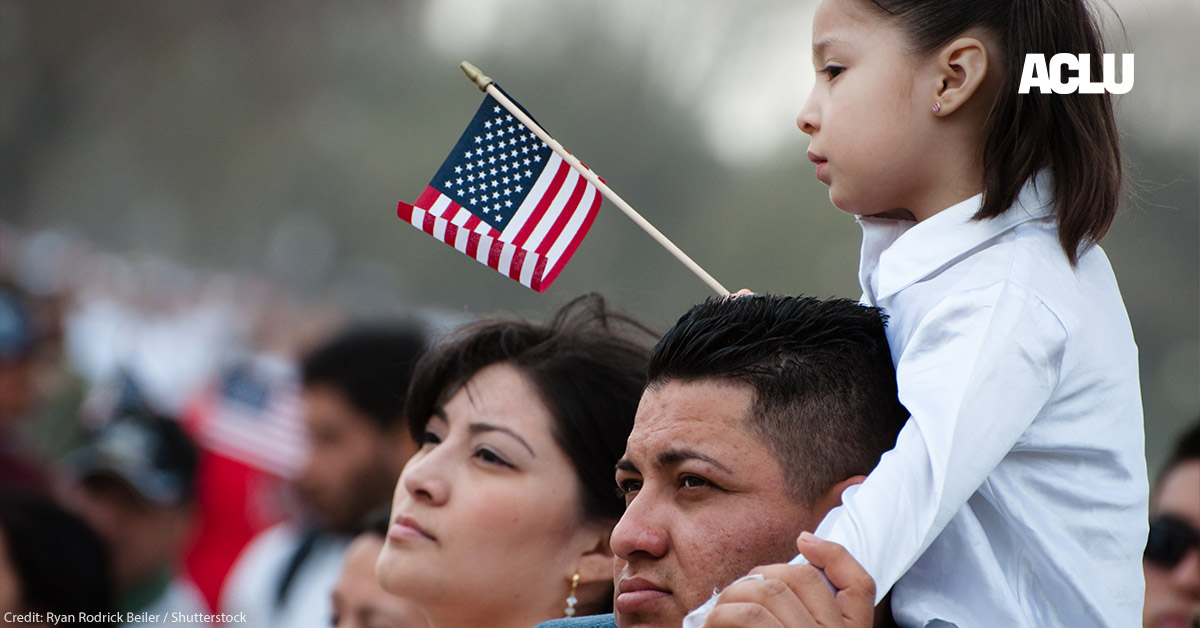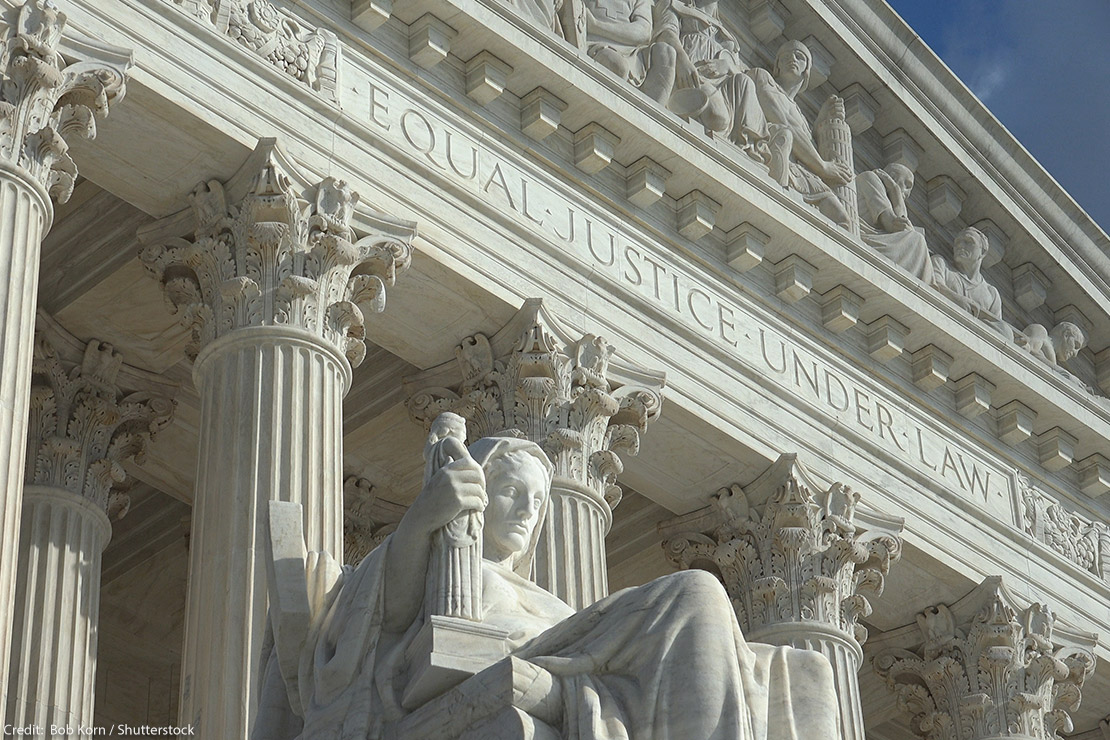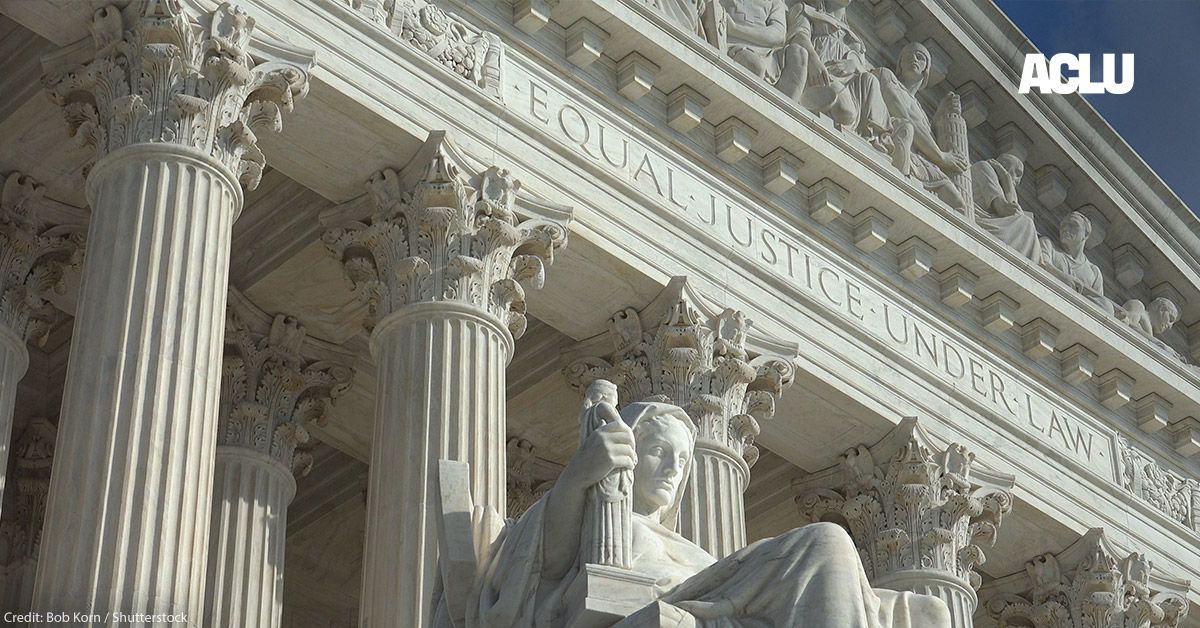By Brian Tashman, ACLU Senior Campaign Strategist & Analise Ortiz, ACLU Communications Strategist
On this day nine years ago, the U.S. government began accepting applications under Deferred Action for Childhood Arrivals, a policy commonly known as DACA.
Thanks to DACA, undocumented people who came to the United States as children could receive temporary protection from deportation that allows them to live, work, go to school, and provide for their loved ones freely in the country they’ve called home. It has been life-changing, even life-saving, for hundreds of thousands, and a result of years of organizing and determination by immigrants rights advocates. But DACA recipients always knew the program was not a permanent solution for them and their families.
The policy only grants protection for two years, causing people to revolve their lives around a ticking clock and forcing them to pay costly application fees every time they need to renew. From the get-go, the program has faced relentless attacks from anti-immigrant politicians, including President Trump, threatening to end the program and put people at risk of deportation once again. In 2017, the Trump administration announced its decision to end DACA. Fortunately their move was blocked by the courts, but a new legal effort from the Texas Attorney General’s office has once again put DACA in jeopardy.
Last month, a federal judge in Texas ruled against DACA, immediately putting a partial end to it. Judge Andrew Hanen ruled that the government cannot approve new applications from people eligible for DACA. People who’ve already had DACA are still protected and can renew it for now, but that could change depending on future court rulings in the case. The news is devastating, particularly for people who recently applied for DACA for the first time, or had plans to apply, and their families.
Along with the humanitarian impact of the ruling, it also has an impact on the U.S. economy as we continue to recover from financial consequences of the pandemic. If the DACA program entirely ended, an estimated 685,000 workers could be removed from the workforce and cost the economy$460.3 billion over 10 years.
Judge Hanen’s decision was a cruel reminder that Congress has failed repeatedly to give us a real solution: a pathway to citizenship for immigrants who came here as children.
The Biden administration and Congress have a mandate from voters to deliver a pathway to citizenship for millions of immigrants – including immigrant youth, Temporary Protected Status holders, farmworkers and essential workers – who for too long have lived in fear of deportation, even as they raise families, contribute to our communities, and keep this country running. Right now, Congress is considering a “human infrastructure” package that includes an earned pathway to citizenship. Millions of people could benefit and a strong majority of voters support it. The House and Senate must act to ensure this promise becomes a reality.
Temporary solutions will continue to leave immigrant communities at risk of being torn apart. People should not be expected to continue living their lives in two-year increments. Politicians must stop playing games with our families and communities.
President Biden and Congress, your time to act is now.


